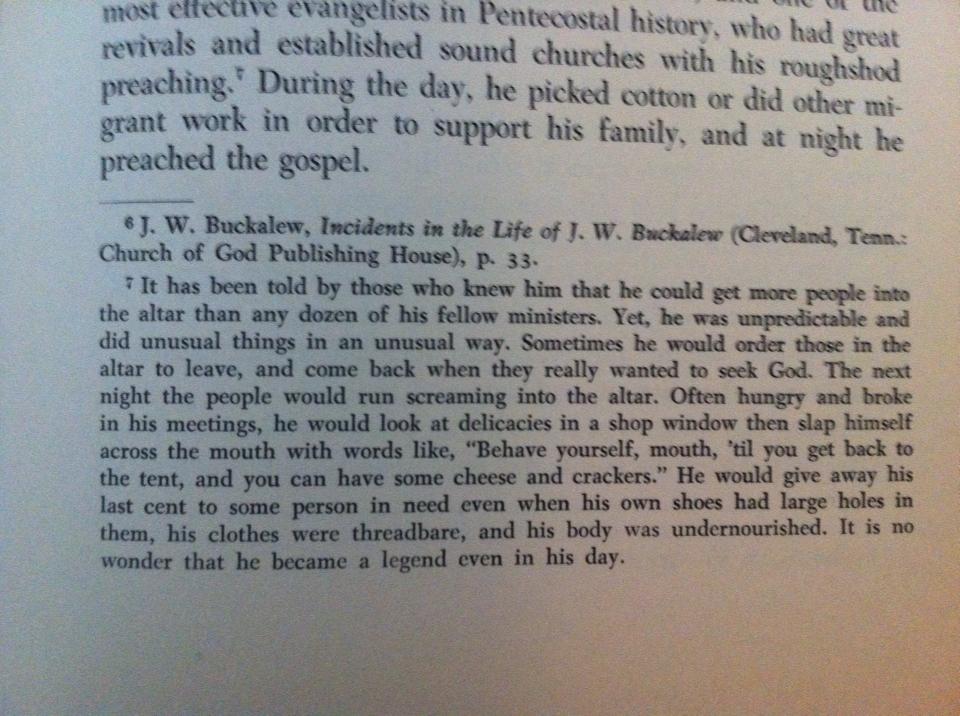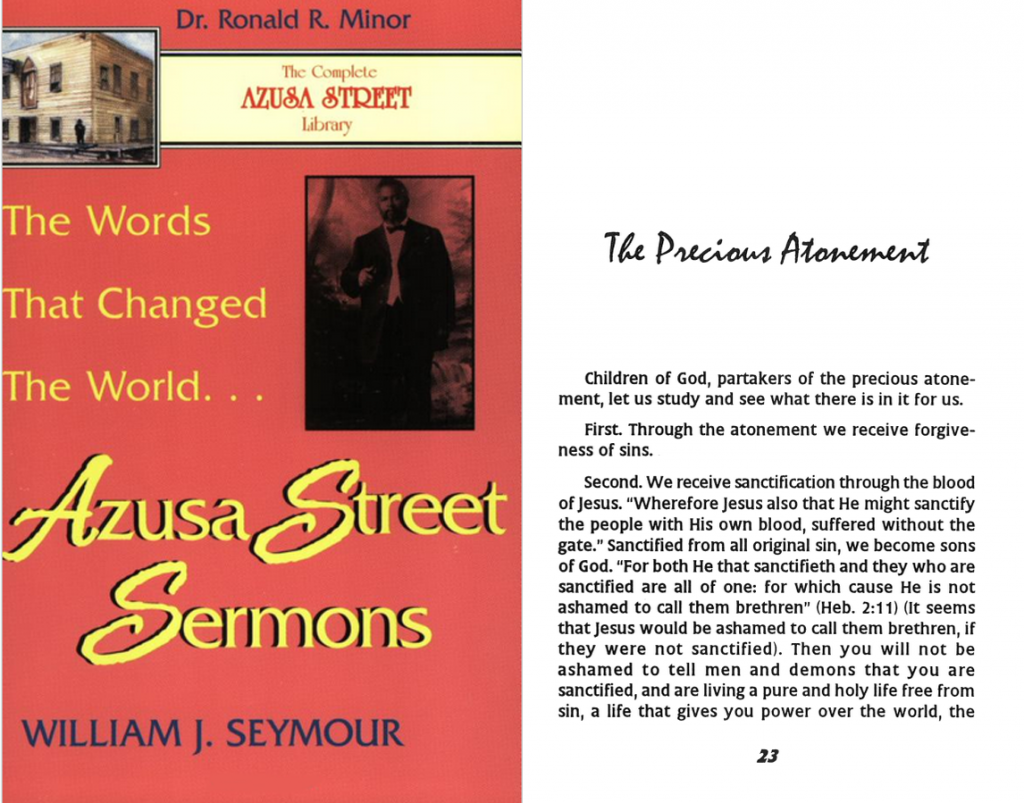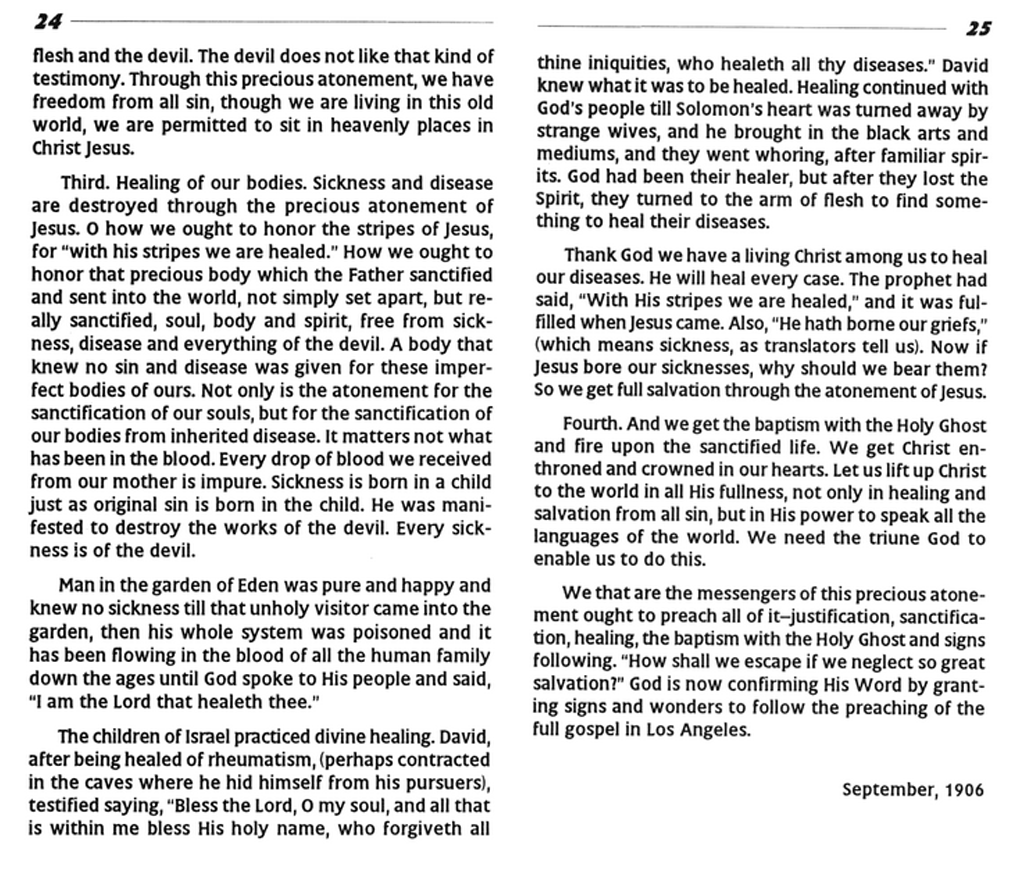Perry Stone: Prophetic Impact in US-Iran Leading to War
Prophetic minister Perry Stone, in Israel for an upcoming telecast when Iran struck a historic deal Sunday with six world powers over Tehran’s nuclear program, sees prophetic significance in the deal with potential negative impact on the United States.
“My concern is that when America pressures Israel in a negative manner, within 24 hours our weather pattern becomes dangerous, which biblically can be a sign of God’s disfavor,” Stone says. “This has been traced back for years. That’s the thing that we have to be concerned about—our own future as a nation, or our favor with God as a nation, by not supporting people of the covenant.”
However, the evangelist says this situation “could be extremely serious for Israel within the next six months to a year, especially by the fact that everyone [in the Middle East] in intelligence knows that Iran wants nuclear weapons, and once they get them, the whole game changes in the Middle East.”
When asked how the weekend’s agreement fits into end-times prophecy from a biblical point of view, Stone said, “In Ezekiel, the war of Gog and Magog, Persia is involved in that war. I’ve read it very carefully, and it looks as though there’s a pre-war that happens. God turns the Persians back and later puts a hook in their jaw and brings them down on the mountains of Israel.
“In my personal opinion, there are going to be two conflicts—one between the Persians and the Israelis at some point, militarily, whether there’s an air strike of some kind or something similar; and somewhere down the road, there will be retaliation among the Persians with the coalition of Islamic nations mentioned in Ezekiel that will try to come against Israel. But according to the prophet, Israel will win that battle. That’s how I’m looking at this.”
Stone had been in Israel a week when the agreement was announced last weekend. He says the Israelis he talked to are “extremely upset” with the Obama administration.
“They are very upset with President Obama,” he says, “and they are coming out and saying that if you let this go and let the Iranians be unrestrained in their nuclear program, the United States in the future will pay with a nuclear attack on American soil by Islamic radicals. They are publicly coming out and saying this: ‘Don’t blame us when this happens.’”
Stone, director of one of America’s fastest-growing ministries, Voice of Evangelism, says he is not predicting an attack on U.S. soil, only that it could happen with a future Iranian regime using nuclear weapons.
Stone says it is difficult to say what he thinks Obama should have done but notes, “When it comes to the nuclear threat, there has to be a total removing of Iran’s developing and enriching centrifuges, or there has to be an attack on those facilities to set them back for at least several years. The problem is that the regime that is in power will use their weapons against the Saudis, against the Gulf States or against Israel in the very near future.”
But Stone adds that he is not afraid of Israel’s ability to defend itself.
“Suddenly,” he continues, “everyone around them will want a nuclear weapon to defend themselves from the nuclear weapon of their enemies. You’ll have the whole Middle East being nuclear, and that’s the most dangerous thing imaginable.”
The six-month deal includes “substantial limitations that will help prevent Iran from creating a nuclear weapon,” President Barack Obama said in a nationally televised address.
The agreement, which came after days of marathon talks, “addresses Iran’s ability to enrich uranium, what to do about its existing enriched uranium stockpiles, the number and potential of its centrifuges and Tehran’s ‘ability to produce weapons-grade plutonium using the Arak reactor,’ according to a statement released by the White House,” CNN has reported.
In addition, Iran agreed to provide “increased transparency and intrusive monitoring of its nuclear program,” the White House statement says.
Israeli Prime Minister Benjamin Netanyahu, who has consistently asked the West to be wary of any deals with Iran, fiercely criticized the deal.
“What was concluded in Geneva last night is not a historic agreement; it’s a historic mistake,” he told reporters Monday. “It’s not made the world a safer place. Like the agreement with North Korea in 2005, this agreement has made the world a much more dangerous place.”
Perry Stone: Invisible Warfare 101
Diamonds in the “Rough and Ready” (Pentecostal Series)
- Alive, alive! (A personal testimony)
- Church of God Primitivism
- Bulgarian Church of God
- J.W. Buckalew
- WAR ON THE SAINTS: Revival Dawn and the Baptism of the Spirit
- How Jezebel Killed One of the Greatest Revivals Ever
- Pentecostal Primitivism Preserved
- Why revival came? by Dr. Charles Conn
- Azusa Street Sermons
- The FORGOTTEN ROOTS OF THE AZUSA STREET REVIVAL
- First person to speak in tongues in the Assemblies of God was William Jethro Walthall of the Holiness Baptist Churches of Southwestern Arkansas
- The Work of the Spirit in Rhode Island (1874-75)
Ministering at the Good Shepherd Church in Florida
The FORGOTTEN ROOTS OF THE AZUSA STREET REVIVAL
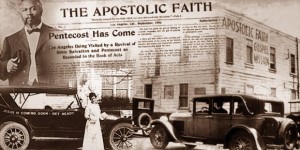 by HAROLD HUNTER, PH.D.
by HAROLD HUNTER, PH.D.
Writing during the glow of the Azusa Street revival, V.P. Simmons claimed to have 42 years of personal exposure to those who spoke in tongues. Published in 1907 by Bridegroom’s Messenger and circulated as a tract, Simmons chronicled the history of Spirit baptism from Irenaeus (2nd century) up to and including a group from New England whom he personally observed manifesting tongues-speech as they continually partook of a spiritual baptism.1 Identified as Gift People or Gift Adventists, they were widely known for their involvement with spectacular charisms.Early Pentecostal periodicals reported that tongues-speech was known among these groups since the latter part of the 19th century. Some groups were said to number in the thousands.
William H. Doughty, who, by 1855, had spoken in tongues while in Maine, was counted among that number. Elder Doughty moved to Providence, Rhode Island, in 1873 and assumed leadership among those exercising the gifts of the Spirit.3 Doughty’s mantle was passed on to Elder R.B. Swan who, reacting to the Azusa Street revival, wrote a letter explaining that the Gift People in Rhode Island had experienced speaking in tongues as early as 1874–75. (See “The Work of the Spirit in Rhode Island.”) B.F. Lawrence followed Swan’s letter describing an independent account of a woman who spoke in tongues in New York, perhaps prior to 1874, a result of her contact with the Gift People.4 (See “A Wonderful Healing Among The Gift People.”)
Stanley H. Frodsham quotes Pastor Swan’s claim to having spoken in tongues in 1875. Swan speaks of great crowds drawn from five states and specifically mentions his wife — along with Amanda Doughty and an invalid hunchback who was instantly healed — among those who spoke in tongues during this time.
Simmons said that Swan’s group adopted the name “The Latter Rain” after the advent of the Pentecostal movement. Their activities extended throughout New England states, especially Rhode Island, New Hampshire, Massachusetts, Vermont, and Connecticut, with the 1910 Latter Rain Convention held October 14–16 in Quakertown, Connecticut. Frank Bartleman frequently referred to joint speaking engagements with Swan, specifically recounting a 1907 tour that included a convention in Providence, Rhode Island, where he spoke 18 times.
Previously overlooked in related investigations is whether the Doughty family counted among the Gift People overlap with the Doughty who traveled with Frank Sandford. Lawrence attests that Swan’s circle included William H. Doughty’s daughter-in-law, Amanda Doughty, and her unnamed husband, an elder in the Providence congregation.8 Simmons says that William H. Doughty had two sons, the oldest, Frank, who was ordained. Could the unnamed brother of Frank be Edward Doughty, who at the end of the 19th century was part of Sandford’s entourage? So it seems.
Most of the groups named here have similar stories. For example, among the Fire-Baptized Holiness ranks was Daniel Awrey who had spoken in tongues in 1890 in Ohio. His residence was in Beniah, Tennessee, where an outbreak of speaking in tongues was reported in 1899. F.M. Britton wrote about people speaking in tongues in his Fire-Baptized revivals that predated the Azusa Street revival. Also, a revival in Cherokee County, North Carolina, in 1896, that gave the Church of God (Cleveland, Tennessee) many of its early leaders reported an outburst of speaking in tongues among several of the adherents. Given the above accounts, there is some debate as to whether Parham first heard speaking in tongues while at Sandford’s Shiloh in Maine or while he was among Fire-Baptized enthusiasts.
THE FOLLOWING ARE THE CATHOLIC LEADERSHIP OR GROUPS RECORDED TO HAVE SPOKEN IN TONGUES:
• ST. HILDEGARD (1098-1179)
• ANTHONY OF PADUA (1195-1231)
• FRANCISCANS (1200S)
• ANGE CLARENUS (1300)
• VINCENT FERRER (1350-1419)
• STEPHEN, MISSIONARY TO GEORGIA (1400S)
• ST. COLETTE (1447)
• LOUIS BERTRAND (1526-1581)
• THE JANSENISTS (1600)
• JEANNE OF THE CROSS (1450S)
• FRANCIS XAVIER (1506-1552)
SHERRILL’S BOOK ALSO LISTS SOME INDIVIDUALS FROM THE 19TH CENTURY WHO REPORT TONGUES-SPEAKING OCCURRING:
- 1855 V.P. SIMMONS
- ROBERT BOYD (DURING MOODY’S MEETINGS)
- 1875 R.B. SWAN
- 1979 W. JETHRO WALTHALL
- MARIA GERBER
MORE BOOKS to STUDY:
- “THEY SPEAK WITH OTHER TONGUES” BY JOHN L. SHERRILL
- “GLOSSOLALIA: TONGUE SPEAKING IN BIBLICAL, HISTORICAL, AND “PSYCHOLOGICAL PERSPECTIVE” BY FRANK E. STAGG
- “SPEAKING IN TONGUES: A GUIDE” BY MILLS
- “SPEAKING WITH TONGUES: HISTORICALLY AND PSYCHOLOGICALLY CONSIDERED” BY GEORGE CUTTEN.
Azusa Street Sermons: The Precious Atonement
First person to speak in tongues in the Assemblies of God was William Jethro Walthall of the Holiness Baptist Churches of Southwestern Arkansas
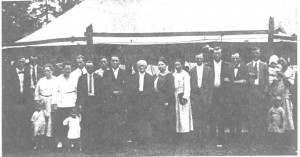 By Glenn Gohr
By Glenn Gohr
A/G Heritage, Fall 1992
Although the modern Pentecostal movement relates its beginnings to Charles Parham, who formulated classical Pentecostal theology at his Bible school in Topeka at the turn of the century, throughout history, from apostolic times to the present, there have been certain religious groups and isolated cases of individuals who have experienced tongues-speaking and spiritual gifts.
William Jethro Walthall, who founded the Holiness Baptist Churches of Southwestern Arkansas, a group which later merged with the Assemblies of God, is an important figure who received his baptism in the Spirit prior to Parham’s launching of Pentecostalism in 1901.
Walthall’s Spirit baptism, which occurred 113 years ago, is one of the earliest documented cases of speaking in tongues in North America. Earlier instances of tongues-speaking have been reported among the Shakers, the Holiness Movement, the “Gift People” or “Gift Adventists” in New England, and others. It is very possible that Walthall is the earliest person to have received the baptism in the Holy Spirit and who later joined the Assemblies of God.
William Jethro Walthall was born in Nevada County, Arkansas, March 9, 1858, the son of Charles Featherston Walthall and Mary Jemima Meador. His father died in 1863 at Rock Island, Illinois, as a prisoner in the Civil War, and his mother died 2 years later. Orphaned at age 7, he was reared by his widowed grandmother. However he had no Christian upbringing, so it was not until 1877 that he was confronted with the claims of the Gospel. That happened when he attended an old-time Methodist meeting and conviction gripped his heart, resulting in his conversion at age 19. Two years later, on August 3, 1879, he was married to his first wife, Melissa P. “Missy” Beavers, who bore him two children, Millard and Ibber Mae. After Melissa passed away, he married Hattie Vaughn on March 24, 1915.
While a young Christian, Walthall had a yearning for more of the workings of God in his life. He earnestly began to seek for a fullness of power to witness and better serve the Lord. This spiritual hunger led him to carefully study the Book of Acts and other scriptures. There he found recorded an enduement with power of the Holy Ghost which had accompanied the Early Church. He wanted this same experience in his life.
During a season of fervent prayer, he received a mighty infilling of the Spirit on September 3, 1879. Since he had never heard of the baptism of the Holy Spirit, he did not receive his Baptism through any prescribed theory or method.
Until that time all he knew about the Holy Spirit came from the teachings of the Methodists and Baptists. But this was something new. His experience came about in answer to prayer and through his own study of the Word of God. From the outset he understood that his experience corresponded with the records given in the Book of Acts.
In his testimony, Walthall describes his infilling by saying, “I was carried out of myself for the time being.” From the time of his Baptism, he testified that he often felt the strong anointing power of God. At times he would fall under the power of God when the Spirit came upon him. He also spoke in tongues as the Spirit directed.
For two years, during which time the Holy Ghost would often fall on me, I walked with God. Sometimes while in service and sometimes when alone in prayer I would fall prostrate under His mighty power. While under this power my tongue seemed to be tied in the center and loosed at both ends. I knew nothing of the Bible teaching on the Baptism or speaking with tongues, and thought nothing of what had happened in my experience.
Walthall was ordained by the Missionary Baptist Church on May 29, 1887, and served several congregations in Southwest Arkansas. He was active in various associational committees including foreign missions and temperance. In 1891 he was pastor of Piney Grove Church at Boughton, Arkansas, which was a part of the Red River Baptist Association of the Southern Baptist Convention. In fact, the annual associational meeting was held that year at Walthall’s church. The next year he was pastoring two churches at Bluff City and Prescott. From 1894-1895 he was pastoring at Stephens. The last Baptist church he pastored was at Buena Vista. Because of the prevalent view of the Holy Spirit held by Baptists, Methodists, and other mainline churches, Walthall had some reservations about his experience, as he shares in his testimony:
The ordinary Methodist and Baptist teaching was all that I knew, and, of course, that served to diminish my experience and to paralyze my faith rather than build me up. In the meantime, I began preaching a work to which I was called when the blessed Spirit filled me. I always felt that there was a lost chord in the Gospel ministry. My own ministry never measured up to my ideal, nor did the teaching of my church (Baptist) measure up to my experience.
Then in 1895 Walthall came into contact with the Holiness revival. Its emphasis on the work of the Holy Spirit impressed him. Its teachings approximated his ideal more nearly than anything else, but he never fully ascribed to the Holiness theology. He could not accept its theory of sanctification; nor could he accept its abridgement of the supernatural. Even so, the Holiness revival opened him up to a larger sphere of ministry, This in turn gave him the encouragement he needed to preach the full gospel message as he understood it from the Scriptures. As he began to preach a full gospel message, the Baptist leaders excluded him from his church and he was ostracized from the Baptist ministry in 1896. He continued preaching on his own.
After my new vision of the Word of truth, and my expulsion from the Baptist fellowship and ministry, I went alone with a new zeal in an independent, plodding ministry, with church and school houses closed against me. I was looked upon with suspicion, as unbalanced but was so animated by the divine presence that it seemed at times as if terrestrial bearing was almost lost. Baptist minister, J. C, Kelly, and other Baptists who became disfellowshipped because of their beliefs in entire sanctification and the work of the Holy Spirit.
He was soon followed by another Baptist minister, J. C. Kelly, and other Baptists who became disfellowshipped because of their beliefs in entire sanctification and the work of the Holy Spirit.


